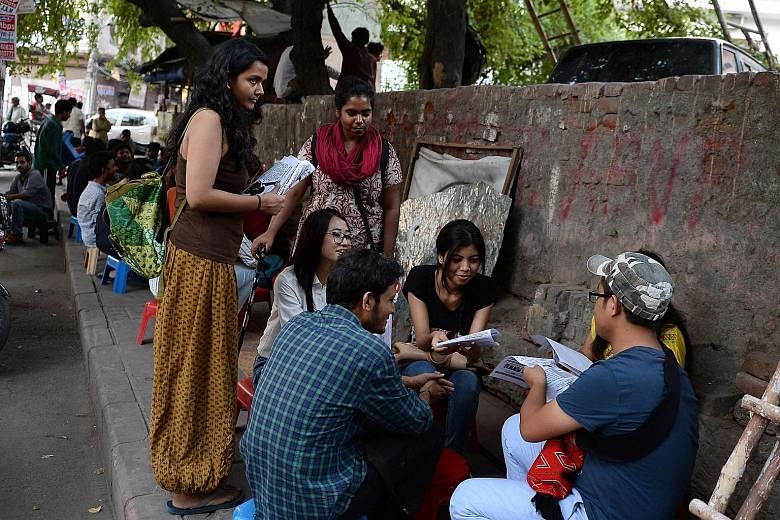Political science postgraduate student Utsa Sarmin came to study at Delhi University five years ago, hoping for a college experience unfettered by too many rules.
That was far from the case. Instead, the 21-year-old said she was constantly told what not to do - first as an undergraduate and now as a postgraduate student living in an all-women's hostel at the university.
"When I moved away, I wanted to have the hostel experience but there were so many restrictions. As an undergraduate I had to be in my college hostel by 7.30pm. Now the deadline is 10pm," said Ms Sarmin, who is from Kolkata. "They (the authorities) can come and check your room at any time... If we get back late, they confiscate our identity cards and call our parents."
Although well aware that New Delhi has acquired a reputation as the country's rape capital in recent years, Ms Sarmin and other female students want more control over their lives and to have the same freedoms male students enjoy.
When she heard about Pinjra Tod, or Break the Cage, she immediately signed up to the movement started by female students in August.
"It's really not about safety, but about controlling women. They routinely ask women 'where are you going, who are you meeting'. There is an atmosphere of suffocation," said Ms Natasha Narwal, a 27-year-old Master of Philosophy student.
"The boys don't have any restrictions. Their curfew is never implemented. We want to reclaim the public space. One of our demands is why can't you make the campus safe. Start by putting up street lights on every road instead of locking us up."
Under the Pinjra Tod campaign, women have held protests, started a signature campaign, held night marches and started a Facebook page where they share their experiences. Their demands range from extending curfew timings to setting up sexual harassment committees in every college.
Campaigners this week presented a collection of college hostel rules to the Human Resource Development Minister Smriti Irani. The women held up placards outside Ms Irani's office - "Cooking and ironing of clothes strictly prohibited in rooms", said one placard, while another said "A warden has the authority to enter any room at any point for a surprise check".
Some hostels ban laptops and mobile phones in rooms; others do not allow students to congregate in rooms without permission. In many undergraduate hostels, three consecutive violations of curfews that range from 7.30pm to 9pm will result in suspension or even expulsion. Most men's hostels have deadlines beyond 9pm.
The university authorities said they have had to impose these measures to keep women safe, with most parents supportive of the rules.
"In an open discussion we had with our residents, when we asked them how many families would permit their daughters to venture out if the hostel did not have restrictions on timings and visiting hours, the majority answered in the negative," said Dr Babli Moitra Saraf, principal of Indraprastha College for Women.
"Families seem to be reassured by the thought that the nocturnal movements of their daughters are restricted in the interest of their safety and security."

